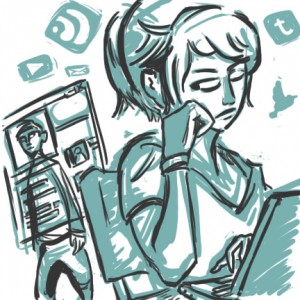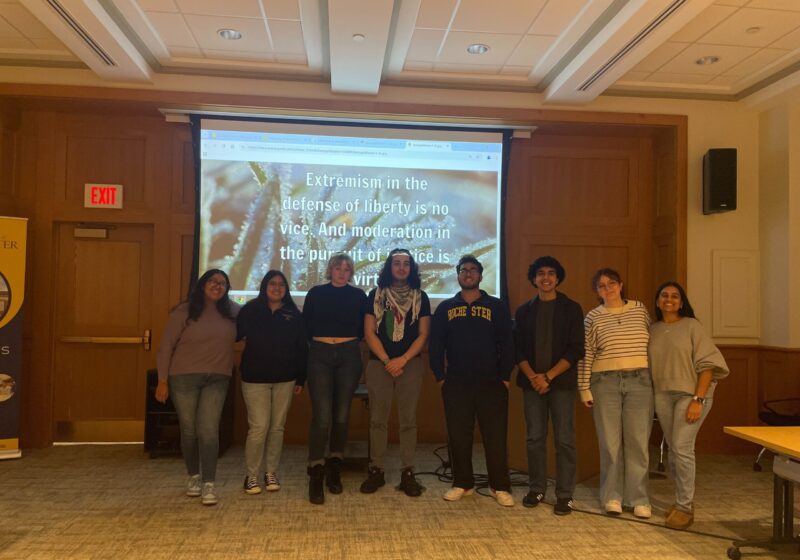Can hyperactive, online communication decrease your focus and impact your study productivity?

It’s a normal weekday afternoon when your head snaps up from your laptop and you realize you’ve been surfing online for almost two hours straight. You didn’t spend it on anything in particular – you’ve been surfing from site to site, compulsively looking for new emails, Facebook messages or replies on Twitter between watching cat gifs on FunnyJunk and reading stories on Reddit.
It’s not time you intended to waste, and you have a lot of work to get done, so you slam the computer shut and try to regain focus. But somehow you can’t get anything done – your attention flickers from thought to thought, and you find yourself compulsively checking your phone or going to the bathroom, unable to stay put on any one task.
What you may be suffering from is called Attention Deficit Trait, a term coined in 2005 by Harvard graduate Ned Hallowell to describe the scattered, distracted symptoms experienced by people who have spread their focus between multiple tasks for an extended period of time.
Unlike the genetically influenced Attention Deficit Disorder, or ADD, ADT is not a permanent condition but a collection of habits and patterns that persist after a stretch of multitasking. This period of distraction isn’t clearly defined – for an overloaded mobile phone user, it could be very short, whereas an overworked executive might experience it more or less perpetually.
But however long it lasts, the effects can be seriously detrimental. Besides simple distraction and restlessness, those suffering from ADT may experience irritability, impulsive decision-making and impeded critical thinking when compared to how they perform when calm and focused.
With its constant requests for communication and divided attention, mobile devices and the Internet are the perfect conduits for ADT. While both working and relaxing, we are constantly barraged by new tasks and ideas to consider, processing byte after byte of unrelated but superficially important information that divides and subdivides our finite attention spans.
Worse, many games and websites deliberately encourage this behavior by giving small, perpetual rewards for rapid thinking. Every funny gif and photo you look at releases dopamine into your brain, as does every digital spider you kill and every pixel flower you plant. Apps are designed to be played for two minutes and then swapped out for another, so you’re never faced with a repetitive experience.
These rewards build up and encourage habitual scattered thinking – when erratic thinking is so frequently rewarded, focusing for longer periods becomes taxing and unfamiliar, even when it provides greater overall returns for the effort.
Humans don’t have infinitely extendable working memories, and eventually something has to give. An appointment is forgotten, an email is missed and an otherwise intelligent and productive person suddenly finds themself flakey and unreliable.
New ideas don’t come easily, and when they do, they’re rushed and shallow, bereft of the depth that greater concentration would allow. Over time, the damage starts to add up, we work more hours for even less results, keeping the cycle going.
It’s a familiar scenario for many managers but for college students too. Facebook may not be as “important” as a string of business emails, but it’s just as demanding of your attention and can cause the same disorientation and lost efficiency after you finish.
So how can you prevent ADT? Luckily, it’s not as hard as one might expect – usually, all it takes is making sure you spend at least part of your day away from the technological devices and multitude of tasks needed for modern productivity.
Taking a walk or reading a book for an hour or two can reset your system and allow for more focused effort when you return. Prioritizing can also help – if there are many tasks to accomplish, try grouping them by similarity so you aren’t jumping radically from one topic to another.
If all else fails, the most pronounced prevention tactic for ADT is good old-fashioned human interaction – a solid four to six hours of regular, relaxed interpersonal contact is recommended per day. Having a conversation streamlines your focus and helps with anxiety, upping positivity and reducing impulsivity.
So if you’re feeling jittery and disoriented after a Reddit binge, unable to get any work done, try putting down the phone or laptop and talk to your study partner for a while. You might find that those five minutes of simple chatting will save you hours in the long run.
Copeland is a member of the class of 2015.




